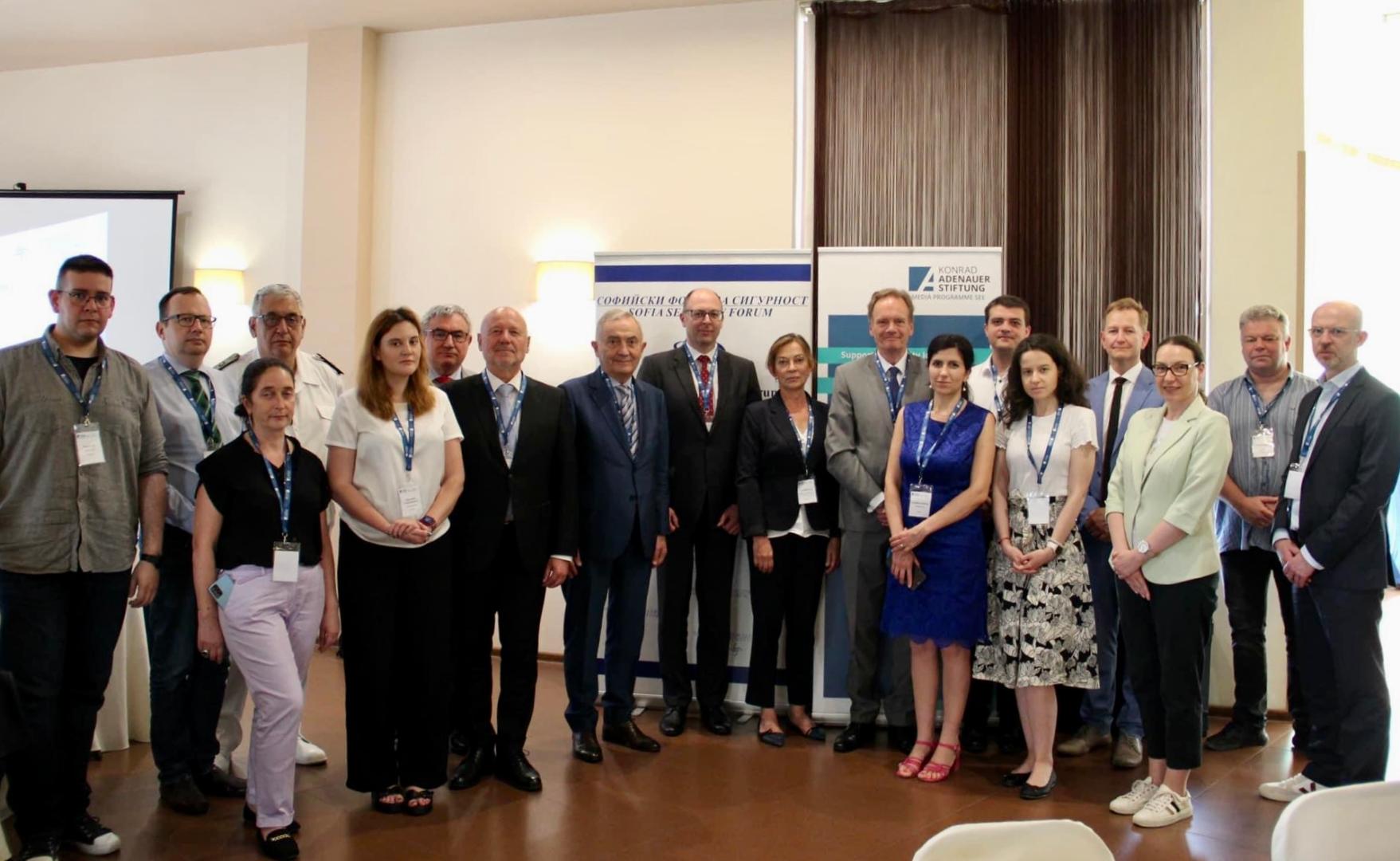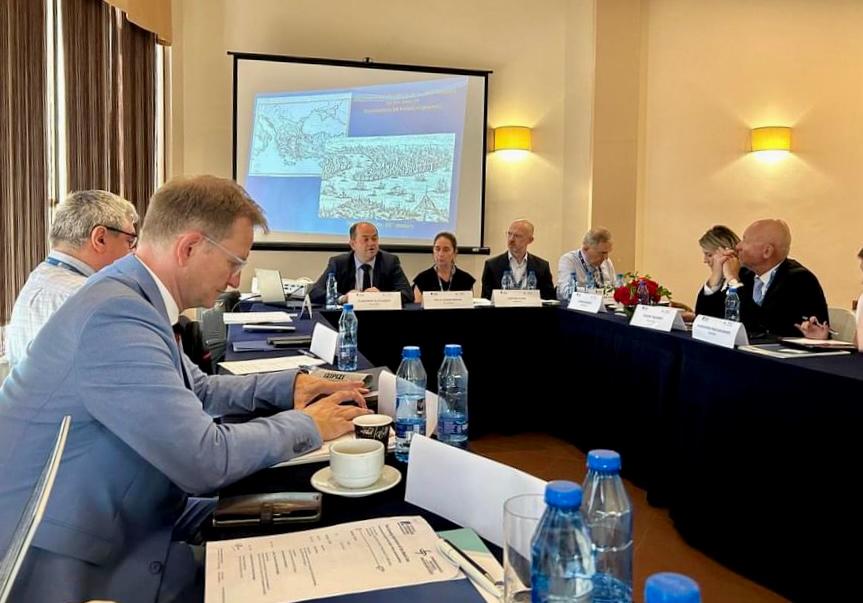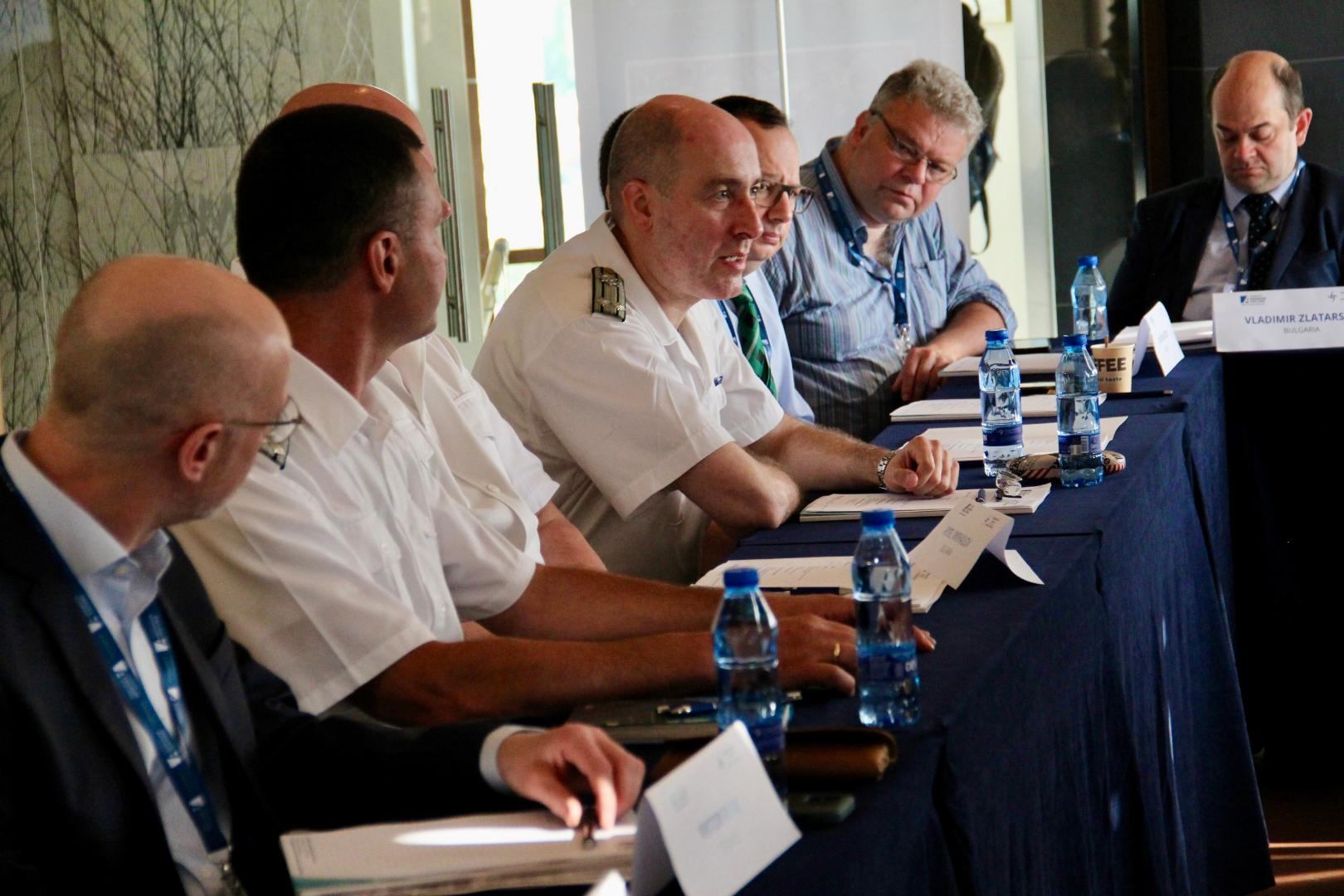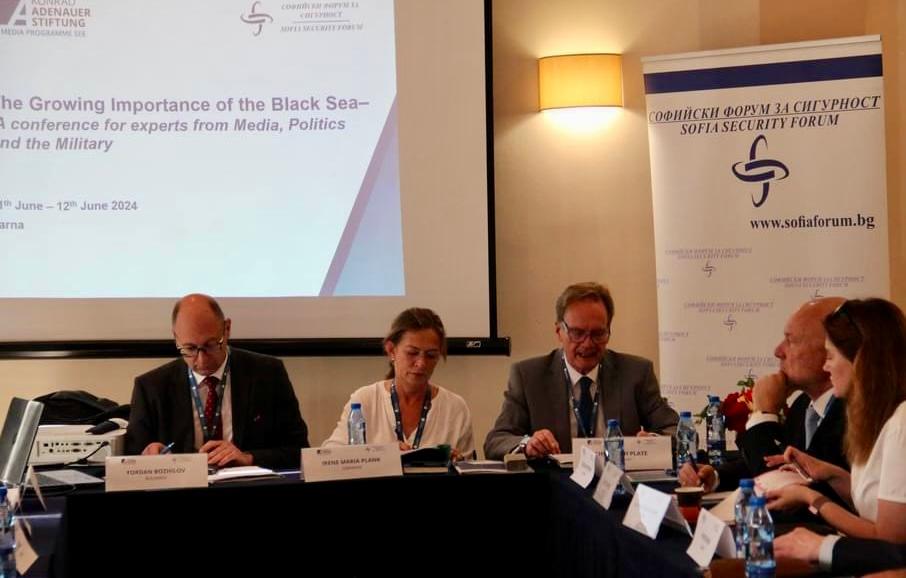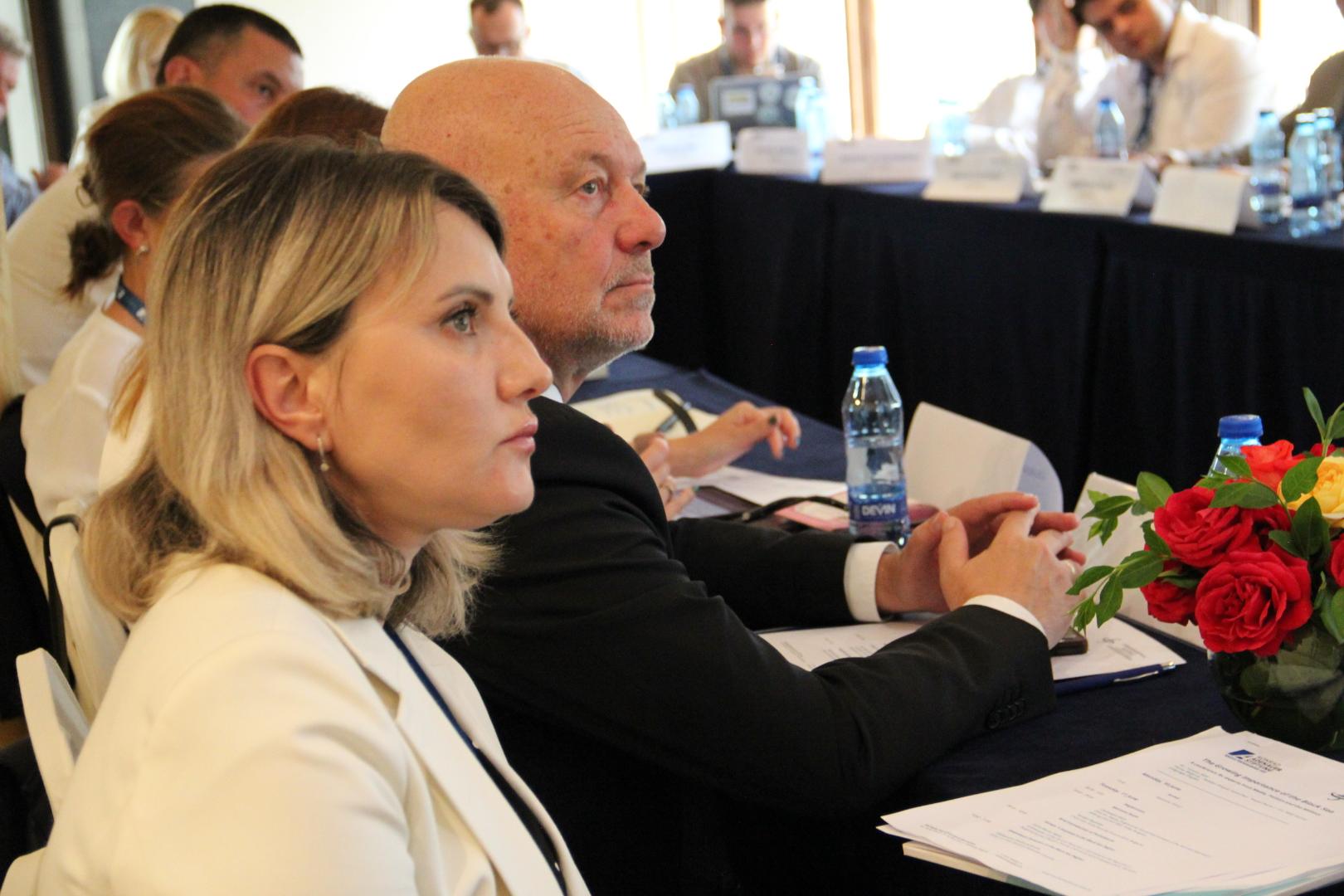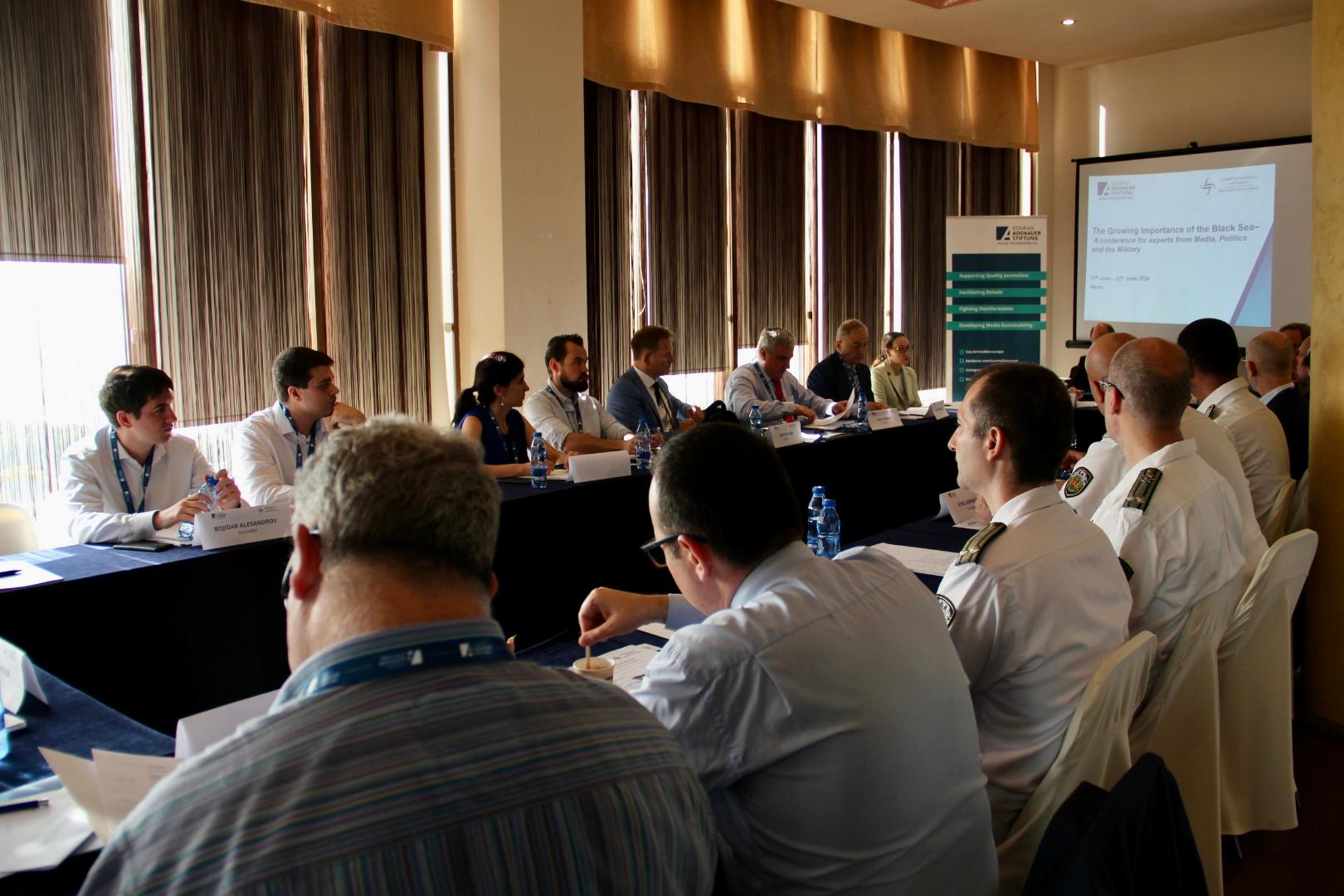The conference was opened by Christoph Plate, Director of the KAS Media Programme South East Europe, and Yordan Bozhilov, Chairman of the Sofia Security Forum (SSF). The German ambassador to Bulgaria, Irene Maria Plank, also participated, underlining the need of reevaluation of the strategic importance of the Black Sea. The first panel discussion of the conference was dedicated to Geopolitical Dynamics of the region. Moderated by Christoph Plate, the panelists included the former Minister of Defense of Bulgaria, Todor Tagarev, the Ukrainian journalist and editor-in-chief of Suspline Mykolaiv, Oleksandra Predrushchenko, and Yordan Bozhilov.
The historical context was presented by Vladimir Zlatarsky, member of the KAS Media Programme, who spoke about the multiple empires that have dominated the Black Sea throughout the centuries. Then, Viktor Funk from Table Media Germany, discussed the influence of economic factors on geopolitical dynamics. He underlined the importance of Russia’s gas exports as an instrument of its policy, and how they shape the political realities in the region. The conference continued with the ‘Strengthening Security through Economic Cooperation in the Black Sea Region’ panel. Amb. Lazar Comanescu, Secretary General of the Organization of the Black Sea Economic Cooperation (BSEC) talked about how economic cooperation, coupled with free trade, could bring about peace and stability in the region in the future.
One of the highlights of the conference was the visit at the Naval Academy ‘Nikola Vaptsarov’. Its Dean, Boyan Mednikarov, showed the visitors around the Academy and presented the facilities in which the students are trained. The next discussion panel took place in the Academy and focused on the military aspects of the topics at hand – ‘Black Sea and Military Strategies’. Rear Admiral Kyril Mikhailov, Commander of the Bulgarian Navy, presented the day-to-day activity of the Bulgarian naval forces, and the ways their work strengthens Bulgarian and NATO security. Siyana Lutzkanova Ph.D., Associated Professor at the Academy, presented NATO’s Defence Education Enhancement Programme (DEEP) and how it is being implemented there. Germany’s Defence Attaché for Romania, Bulgaria and Moldova, Sebastian Erbe laid out Germany’s role within NATO in guaranteeing the region’s security. Major General Paul Hurmuz discussed current and potential NATO strategies in the Black Sea. He underlined the need for more coordination between Black Sea states so that they can respond efficiently in case of a threat.
The second day of the conference began with a screening of the film ‘Absolute Evil – terrible war crimes of Russia’s military in Ukraine’ by the Ukrainian journalist and war correspondent Andrii Tsapliienko. During the following discussion, Tsapliienko underlined that such Russian war crimes are not isolated incidents but are deliberate and coordinated.
The next panel focused on Black Sea media coverage and Russian propaganda. Prof. Dimitar Vatsov, university professor and chairman of the Human and Social Studies Foundation, presented data about Russian disinformation as well as about the attitudes of Bulgarians on Russia, Ukraine, and the war. He discussed how propaganda influences the public perception on these matters. Michael Martens, a correspondent for South East Europe for Frankfurter Allgemeine Zeitung, talked about the potential scenarios for EU enlargement. Then, Christopher Nehring, an expert on espionage and disinformation, and a guest lecturer in Sofia University on Adenauer Fellowship, provided insights about the custom-tailored disinformation messages regarding the Black Sea. Moreover, he provided insights about the spread of propaganda and false news in the past and how it changed with the rise of the digital technologies.
The final part of the conference was dedicated to the media coverage in the region in the context of the war against Ukraine. Divided into two parts, six journalists and media experts contributed by explaining the developments in their own countries: Andrii Tsapliienko from Ukraine, Elena Marzac from Moldova, Sophiko Vasadze from Georgia, Ruslan Trad from Bulgaria, Ion Ionita from Romania, and Barcin Yinanc from Turkey. They all presented the challenges journalists face when covering the war in Ukraine and discussed the respective differences in the separate states.
The conference drew a conclusion with a discussion for all the participants who were able to share their perceptions about the future. Many suggestions were put forward on how to improve the cooperation between experts and media, on the one hand, and between professionals from the Black Sea countries, on the other. The participants expressed their appreciation for the opportunity to build cross-border cooperation networks and, thus, to get a deeper understanding of the Black Sea region.



